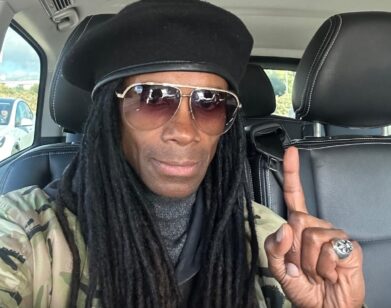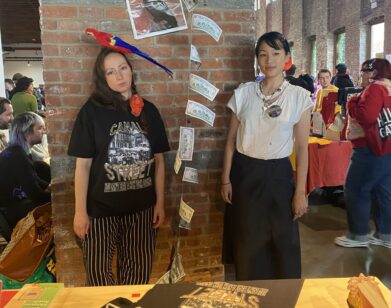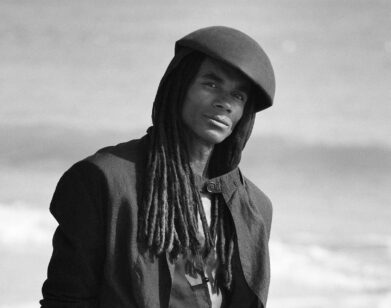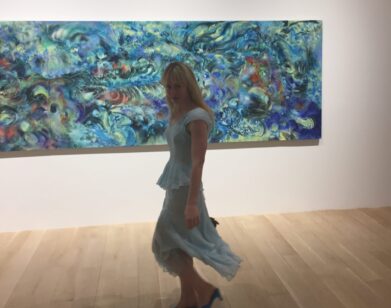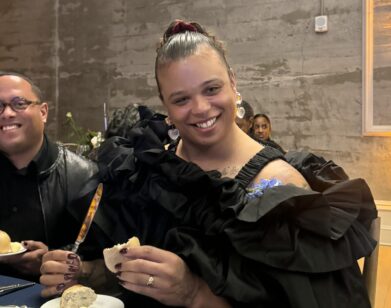Material Girl: Whit Hill on Madonna and More
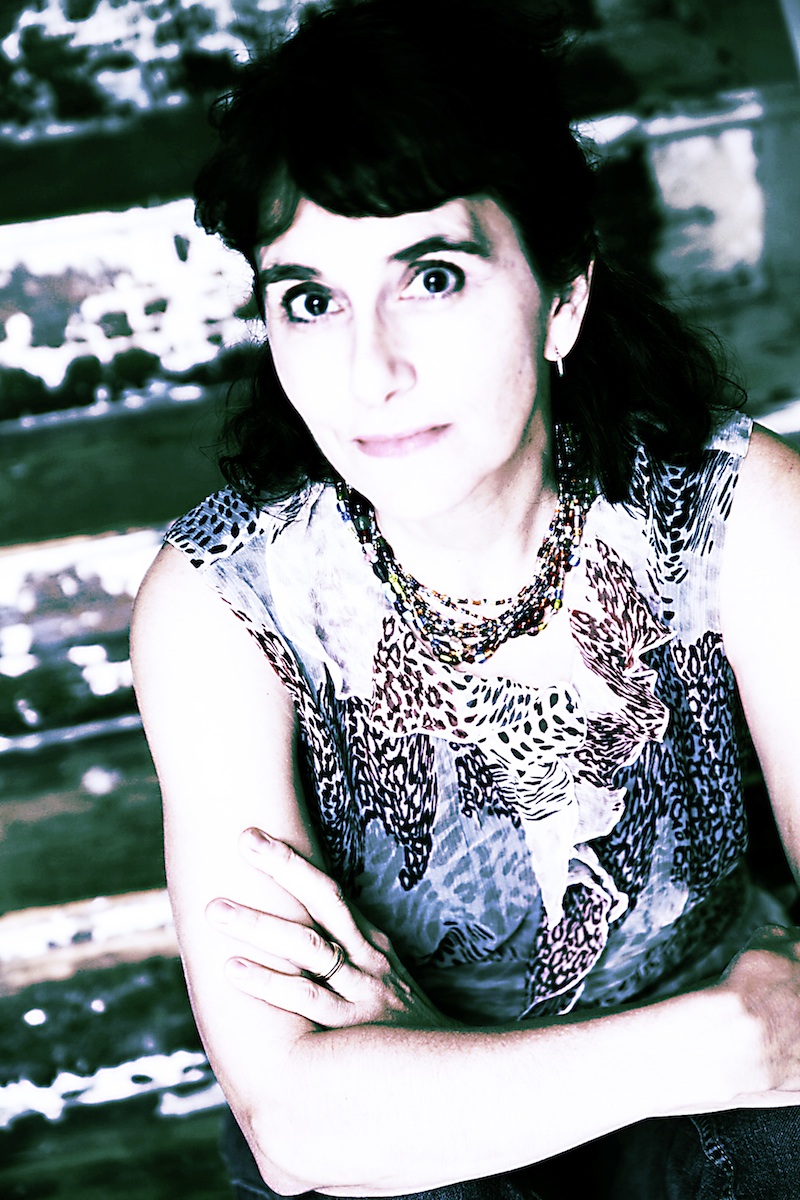
WHIT HILL. PHOTO COURTESY OF ROBIN DODD
Hydrangea-gate notwithstanding, Madonna is a celebrity of near-deity status. But to Whit Hill, Madonna Ciccone was college roommate, close friend and confidante. In her memoir Not About Madonna (Heliotrope Books), Hill recalls her dancing days in Ann Arbor with Madonna and the very different places life led them. True to the title, this is in no way a salacious before-they-were-famous tell-all. Hill’s recollections are of a sweet, loving, sometimes sad and lonely, always ambitious young woman who commanded attention wherever they went.
More fascinating is the way Hill’s own life unfolds: a native New Yorker who left her city forever, disowned by her own mother and unable to find fulfillment in the endless hustle of dance auditions and dangerous, beautiful city streets of the ’80s. As Whit grows increasingly disenchanted, her old pal Madonna begins her meteoric rise to world renown, raising some interesting questions about where the fate of modern artists lays and where true happiness can be found. We talked with Hill about fame versus non-fame, city versus country, what it means to lose a mother, and how being swept up in Madonna’s spotlight impacted her own quiet life.
YOUNG: What’s the difference between fame and non-fame?
HILL: All I ever wanted in terms of success was the ability to make a living and the respect of my peers. I’ve never clamored to be recognized when I walk down the street; that whole thing is pretty terrifying. That’s a thirst and a hunger and a sort of cellular need, that kind of drive. It seems more and more that that’s what we’re supposed to be striving for.
YOUNG: How did growing up in New York surrounded by a certain element of celebrity affect you?
HILL: My father is good friends with Al Pacino, and for years he’s played poker with Al whenever he’s in town. And I don’t know why this happened, but I remember as a child, my dad taking me to Faye Dunaway’s house. It was so random. I remember she had a hanging wicker chair on her balcony, which was on Central Park West, and a dog, and she taught me how to make key lime pie. But I was just a kid, and I was not very overwhelmed by celebrity. Though there are definitely some celebrities that I admire so much, that my heart would just race if I met. Like Dolly Parton, or people who are dead like Lucille Ball. Oh my gosh! I would do anything to have dinner with Lucille Ball, anything.
YOUNG: Chasing fame can lead to some really dark places. Where do you think that hunger comes from?
HILL: Oh wow, I don’t know. It’s so far from who I am, except for having had the experience of living with someone like that. In many ways, it was good for me, it shook me up a little bit. I can be comfortable in groups of people now; I can go out dancing and feel relaxed and fun being the center of attention.
YOUNG: I got the impression that when you were younger, Madonna almost wanted to switch places with you.
HILL: I did sense that she was kind of fanciful and wistful about my relationship with my mother, because she had lost hers. I felt how sad that was, and I didn’t know what to do about it. I didn’t know how to help her. All of which is ironic, considering my mother ended up disowning me later. I’ve thought a lot about that through the years. I think about fate and why people are thrown together. I’ve asked myself many times why I was plucked and Madonna was plucked and we were placed in that tiny room together and that we lost our mothers.
YOUNG: You grew up in New York. Why do you think Madonna was so drawn to New York and has made it such a part of her identity?
HILL: She was from the suburbs, and I think she felt that was the worst possible place she could be from and wanted to be from someplace exciting and free. She thrived on the energy of the city. I do feel like she claimed my city and at the same time, I was just feeling so aware that this was not going to be my home anymore.
YOUNG: Why? What changed for you?
HILL: When I left New York for college, it was my city and I loved it and I was always going to live in New York. And then when I went to college, it was like my psyche expanded. It was like whoa, this is fall! The trees are so beautiful and the air is so crisp and someone has a fire going and I can ride my bike on these endless country roads into the sunset. I had never known how badly I needed that.
YOUNG: So when you got back to New York, you were overwhelmed by the city?
HILL: Yes, by the crush of noise and the feeling that I had to dance really hard and get really good and audition for all these people. It just seemed like a big rat race and I didn’t know how to play the game. And all I really wanted to do was bake bread and cookies and choreograph in a small town and see what I could make there.
YOUNG: Is part of you still a New Yorker at heart?
HILL: Whenever I’m there, there’s a battle in my soul between loving it and feeling like I have got to get out right away. And of course part of it is that my mother is there.
YOUNG: Is her door still shut to you?
HILL: Yes, she hasn’t spoken to me in over thirty years. I’ve tried many, many times. She’s never seen my children, her grandchildren, or heard their voices. And yet, as awful as the final outcome was, of never seeing my mother again, and never really understanding our relationship, she always honored my desire to dance and write. She was supportive of those things. That, to me, is trying to balance the good with the bad.
YOUNG: How do you think Madonna ultimately impacted your life?
HILL: [laughs] By making it so that I’d have interviews like this for the rest of my life. Though, I started it by agreeing to some interviews a long time ago. That was kind of really weird and surreal. I don’t even remember how many people I talked to, VH1, MTV, Lifestyles of the Rich and Famous. I knew what I was getting into, I knew it was distasteful. But I’ll admit it, at the time, I was struggling hugely as a single mom. I priced it really high and was able to pay my back rent. I tried to do it on my terms and not say anything that lacked integrity. But they still made it look like we were lesbians.
YOUNG: How did that moment feel for you?
HILL: I wasn’t pantingly obsessed with everything my ex-roommate was doing. Believe me, I was busy with my own life and there would be years where I wouldn’t hear from anybody. Then there would be these fleeting moments where I’d be like, “Oh my gosh! Something big is happening to Madonna, that’s interesting, now what’s for dinner?”
NOT ABOUT MADONNA IS OUT NOW. FOR MORE ON WHIT HILL, VISIT HER WEBSITE.

